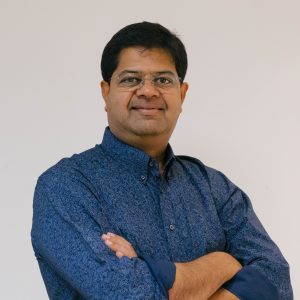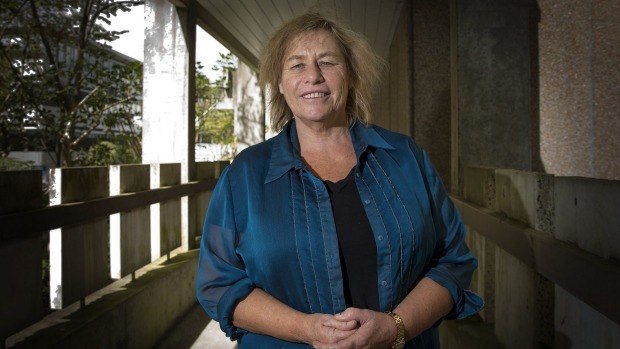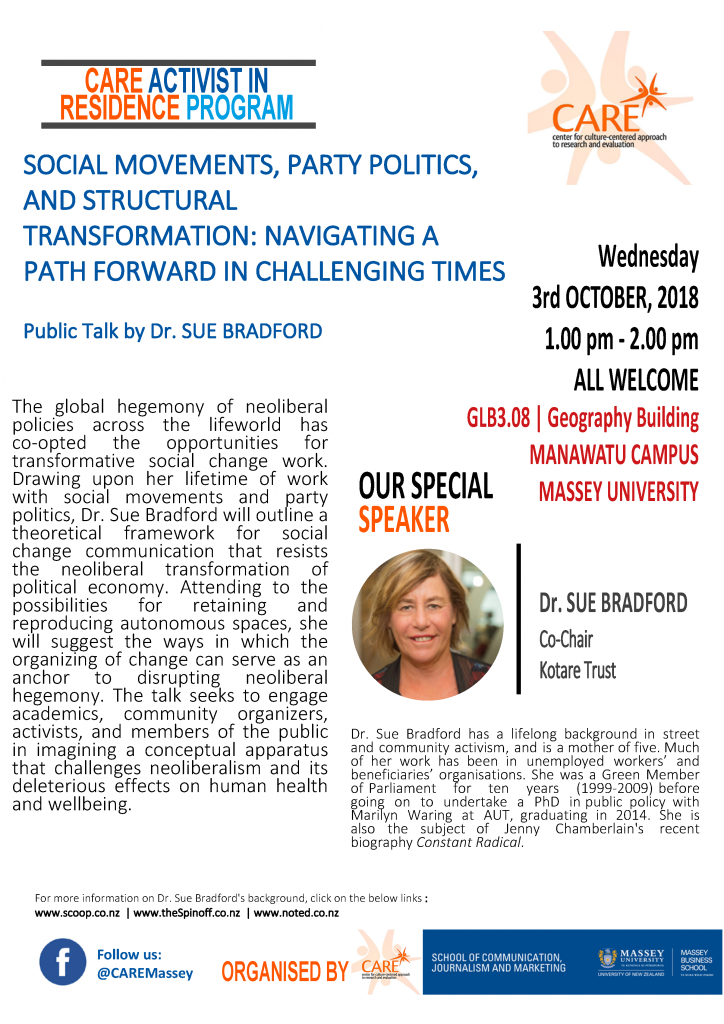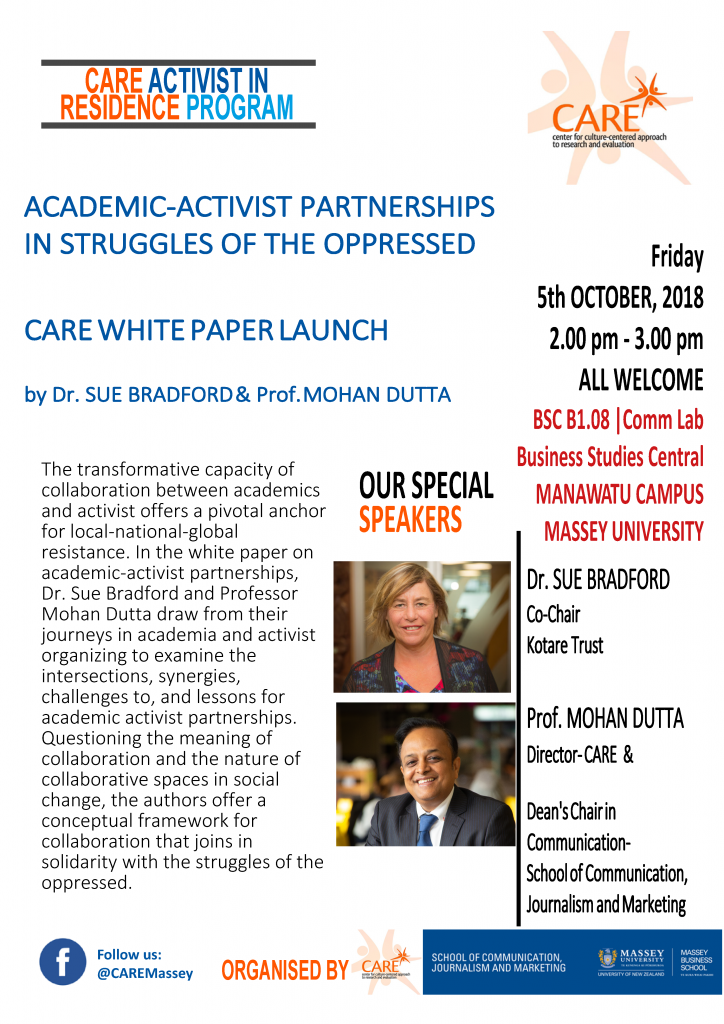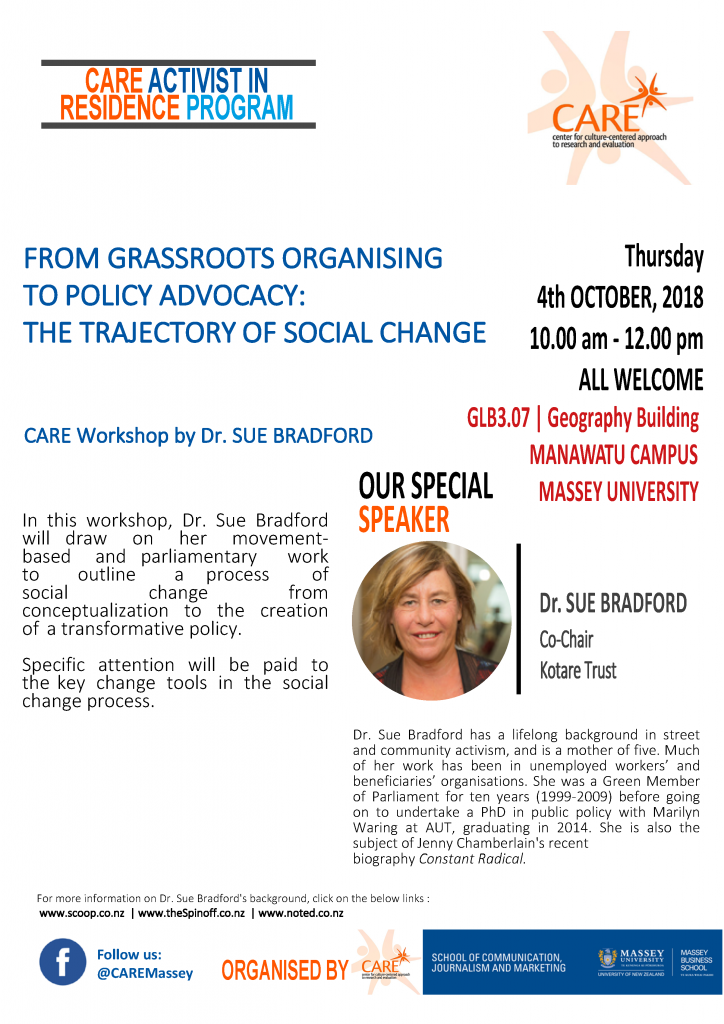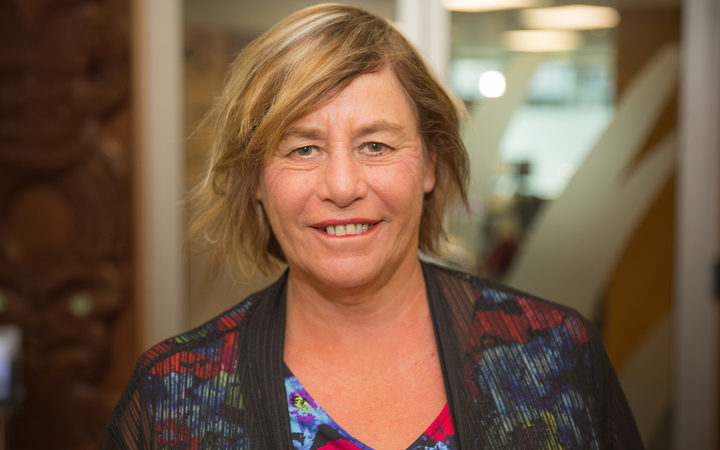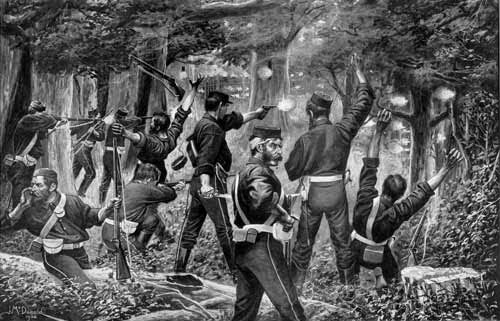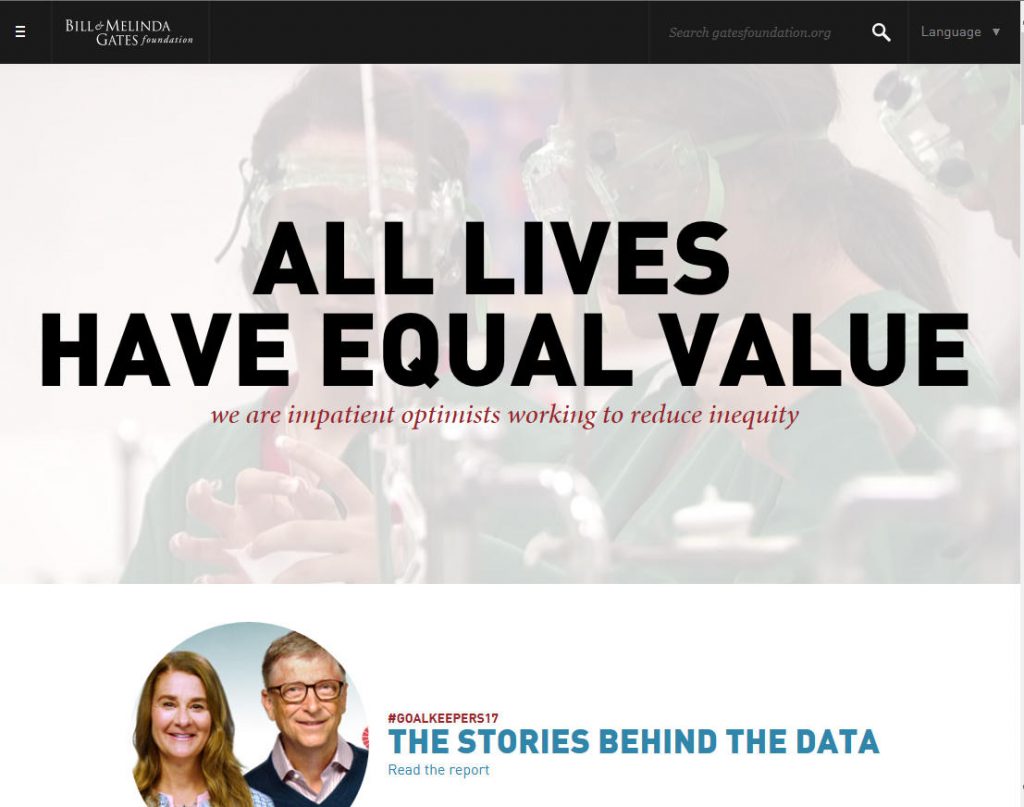Sexual harassment, Domestic Work, and Infrastructures for Voices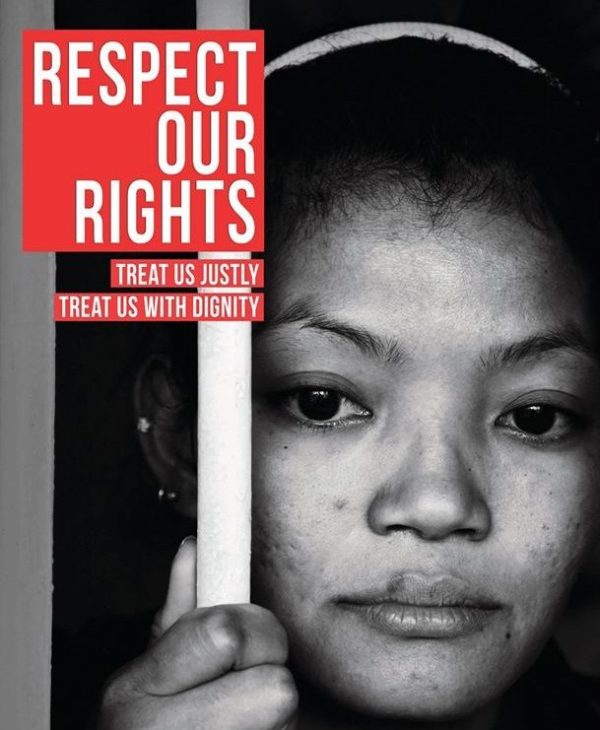
Between 2013 and 2018, the Center for Culture-Centered Approach to Research and Evaluation (CARE) ran the “Respect our Rights” campaign with foreign domestic workers in Singapore.
The campaign, driven by the voices of domestic workers, designed and carried out by domestic workers with support from our research and production teams at CARE, highlighted the plight of domestic workers within the confines of homes in Singapore. Grounded in the framework of creating infrastructures of communication that the women would own, the project sought to build anchors for addressing threatening workplace practices that poorly affect the health of domestic workers. Through outdoor advertising, television and print ads, mobile events, digital media campaign, documentary film, and a series of white papers drawn from our research conducted with domestic workers, the campaign drew attention to the various facets of exploitation and abuse in domestic work.
A consistent theme that appeared throughout our in-depth interviews and advocacy-based fieldwork was the sexual abuse that domestic workers experience while on work.
In many of these instances of experienced abuse, domestic workers discussed how the nature of domestic work meant that they did not have a place to go to and often did not know whom to speak with when experiencing the abuse.
The four walls of the home silenced the stories of sexual abuse. The tremendous power imbalances between employers and domestic workers and the absence of accessible mechanisms for addressing workplace grievances rendered pathways for communication invisible.
Consider the story of Sarah, a domestic worker who had travelled to Singapore from the Philippines so she could send her children in the Philippines to school.
For many days, she had been experiencing sexual abuse.
Her “Sir” [referring to the male employer in the household] would inappropriately touch her. When this harassment occurred the first time, she did not know how to react. She did not push back immediately because she was afraid that her employer would deport her to the Philippines if she spoke up.
As the incidences of abuse kept occurring, she made herself speak up, and forced her body to fight back, pushing away an unwelcome hand or a forced embrace.
The sexual abuse carried on, with the forms of abuse increasing in frequency and magnitude. As the abuse magnified, so did her sense of feeling unwell. Sarah would often throw up, experience stomach cramps, and breaking into uncontrollable tears at the end of the day when she went to bed.
It was nerve racking to anticipate the sexual abuse, to actually experience it, and then to respond back when it happened. She shared how she stayed up until late at night planning strategies of response, figuring out what she would do when her “Sir” touched her again.
It took Sarah all her energy to gather up her strength and speak about the abuse to her “mam.” Although she felt that her employer would not believe her, she needed to at least try to speak up as she “could not take it anymore.”
When finally Sarah spoke with her “mam,” she was accused of lying, of “making up” things to create trouble. Her “mam” threatened Sarah that she would call the immigration and checkpoint authorities in Singapore and get her deported.
The story of Sarah is also the story of Radha, Nithya, and Carla. Carla also shared a story of her friend who was deported, having been accused of stealing from the employer after having brought up the incidences of sexual abuse to the employer and having asked him to stop.
The tremendous power imbalances at work, the isolated nature of the work, the ambiguities around the norms of work and home in domestic work, and the invisibility of communication structures for voice translate into suffering through the everyday forms of sexual abuse. Domestic work is a case exemplar of precarious work, without policy protections, all the way from wages to working hours to workplace conditions.
Even as our advisory group of domestic workers created a digital space on Facebook for sharing their stories, stories of sexual abuse are often not shared here. The digital space feels insecure and threatening, especially with the threat of being deported looming on the horizon.
These stories voiced by domestic workers in Singapore resonate with stories voiced by domestic workers in India, with experiences of abuse that are often deeply immersed in silence. In our ongoing collaborative fieldwork with domestic workers in India, experiences of sexual abuse are tied to hierarchies of class and caste, perpetuating the silencing of women.
Popular culture depictions of relationships between domestic workers and employers (son of employer) render these forms of sexual abuse as normative, failing to approach domestic work from a framework of workplace policies and protections.
The nature of the workplace in domestic work perpetuates the oppressive and insecure working conditions. What is a place of work for a domestic worker is the home of a family, typically positioned much higher in the social power structure. The absence of workplace policies that govern the home as a workplace means that workplace communication channels are mostly absent and even if structures outside the workplace are indeed available (Ministry of Manpower in Singapore), the women don’t know how to access these structures.
While advocacy campaigns such as the “Respect our Rights” campaign push for better workplace policies for domestic workers, for domestic workers to have a voice, opportunities for collective bargaining are fundamental. The International Labour Organization (ILO) emphasizes that it is important for domestic workers to “first be recognized as workers in the labour law, to enjoy fully the right to organize and collective bargaining, and to be registered trade unions.”
In countries such as Uruguay, Brazil, Bolivia and South Africa, domestic workers are unionized in large numbers. Closer, in Hong Kong, domestic workers organize by nationality, and then come together under the Federation of Asian Domestic Workers Unions (FADWU). These union frameworks are integral to domestic workers having a voice and through their voice, transforming the workplace conditions that threaten their health and wellbeing.
The #MeToo campaign across India has drawn attention to the nature of sexual abuse in workplaces. In the confines of homes as workplaces, domestic workers often face a wide array of sexual abuse which are normalized into the cultural fabric that organizes home spaces. It is time Indians turned to the sexual abuse of domestic workers that is written into the cultural fabric and is simultaneously erased.
by : MOHAN DUTTA & SATVEER KAUR | 11 OCTOBER, 2018
The Center for Culture-Centered Approach to Research and Evaluation (CARE) carries out advocacy projects through collaborations with workers in precarious working conditions across the globe. Mohan J. Dutta is the Director of CARE and Satveer Kaur, Lecturer in the Chua Thian Poh Community Leadership Center, serves as a researcher on the project. The latest manuscript highlighting the struggles of precarity of unskilled migrant work in Singapore is published in the International Journal of Communication.
Article Source: https://www.thecitizen.in/index.php/en/NewsDetail/index/7/15226/When-She-Spoke-to-Maam-About-Sexual-Abuse-By-Sir-She-Was-Deported
Image source: http://www.fas.nus.edu.sg/srn/archives/53554

